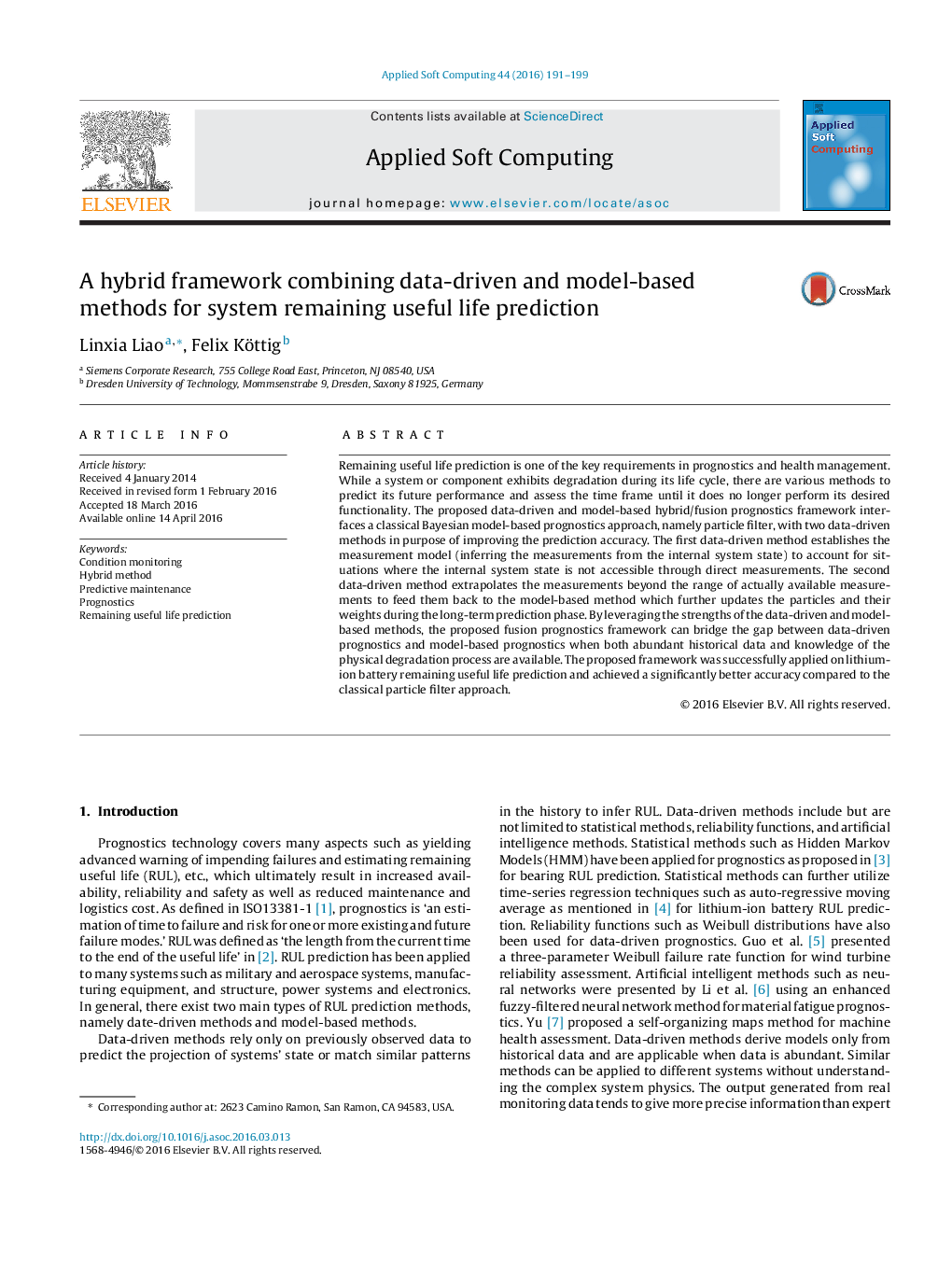| کد مقاله | کد نشریه | سال انتشار | مقاله انگلیسی | نسخه تمام متن |
|---|---|---|---|---|
| 494741 | 862803 | 2016 | 9 صفحه PDF | دانلود رایگان |
• A hybrid/fusion prognostics framework to predict remaining useful life by combining the data-driven methods and model-based methods.
• Introduce a data-driven method to estimate the measurement model in a model-based particle filter framework.
• Introduce a data-driven method to predicted future measurement in long term prediction in a model-based particle filter framework.
• Shown improved prediction accuracy using battery as a case study.
Remaining useful life prediction is one of the key requirements in prognostics and health management. While a system or component exhibits degradation during its life cycle, there are various methods to predict its future performance and assess the time frame until it does no longer perform its desired functionality. The proposed data-driven and model-based hybrid/fusion prognostics framework interfaces a classical Bayesian model-based prognostics approach, namely particle filter, with two data-driven methods in purpose of improving the prediction accuracy. The first data-driven method establishes the measurement model (inferring the measurements from the internal system state) to account for situations where the internal system state is not accessible through direct measurements. The second data-driven method extrapolates the measurements beyond the range of actually available measurements to feed them back to the model-based method which further updates the particles and their weights during the long-term prediction phase. By leveraging the strengths of the data-driven and model-based methods, the proposed fusion prognostics framework can bridge the gap between data-driven prognostics and model-based prognostics when both abundant historical data and knowledge of the physical degradation process are available. The proposed framework was successfully applied on lithium-ion battery remaining useful life prediction and achieved a significantly better accuracy compared to the classical particle filter approach.
Figure optionsDownload as PowerPoint slide
Journal: Applied Soft Computing - Volume 44, July 2016, Pages 191–199
